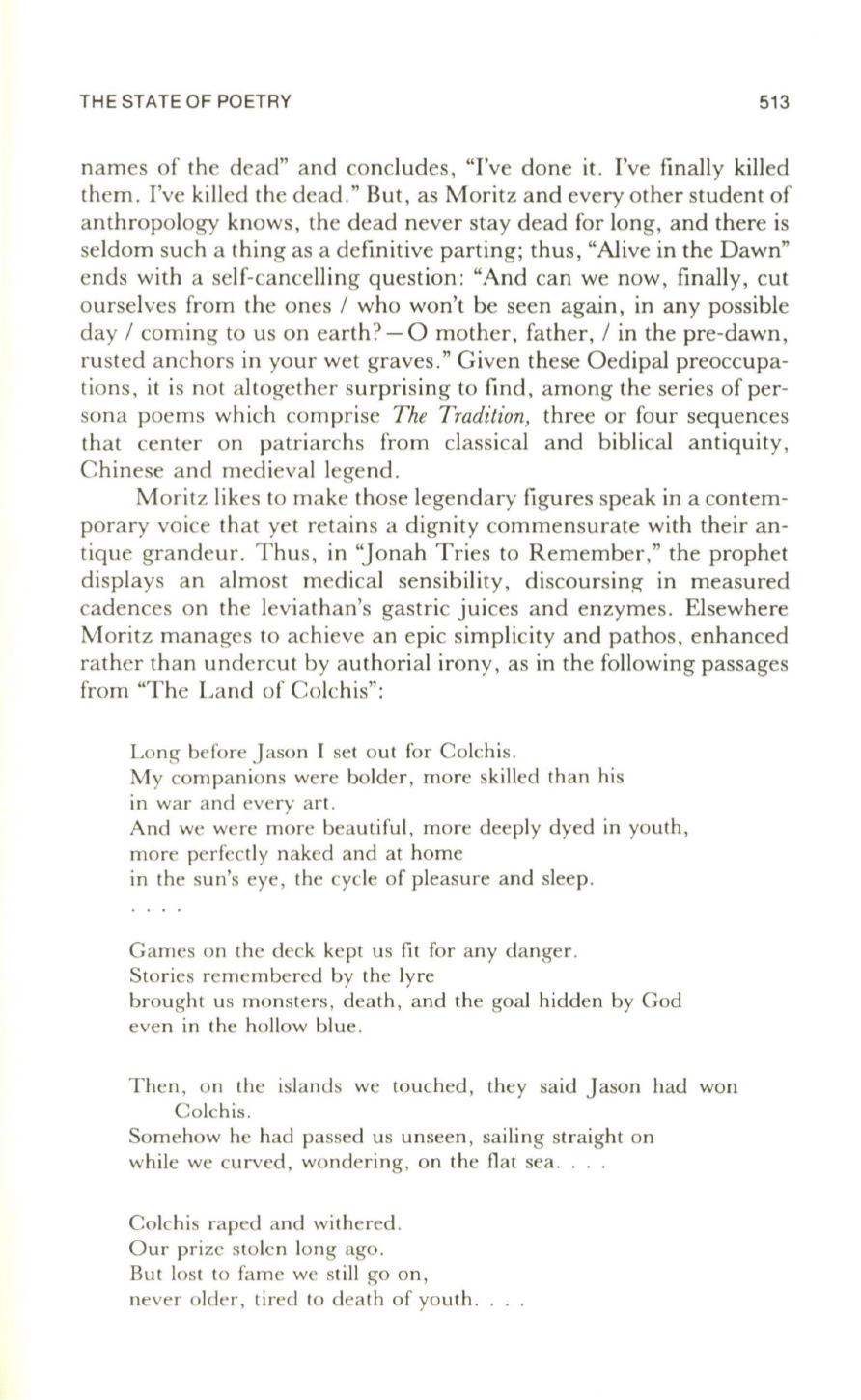
THE STATE OF POETRY
513
names of the dead" and concludes, "I've done it. I've finally killed
them. I've killed the dead." But , as Moritz and every other student of
anthropology knows , the dead never stay dead for long, and there is
seldom such a thing as a definitive parting; thus, "Alive in the Dawn"
ends with a self-cancelling question : "And can we now , finally, cut
ourselves from the ones / who won't be seen again , in any possible
day / coming to us on earth?-O mother, father, / in the pre-dawn,
rusted anchors in your wet graves." Given these Oedipal preoccupa–
tions, it is not altogether surprising to find , among the series of per–
sona poems which comprise
The Tradition,
three or four sequences
that center on patriarchs from classical and biblical antiquity,
Chinese and medieval legend .
Moritz likes
to
ma ke those legendary figures speak in a contem–
porary voice that yet retains a dignity commensurate with their an–
tique grandeur. Thus , in 'Jonah Tries to Remember," the prophet
displays an almost medical sensibility, discoursing in measured
cadences on the lev iatha n's gastric juices and enzymes. Elsewhere
Moritz manages to achieve an epic simplicity and pathos , enhanced
rather than undercut by authorial irony, as in the following passages
from "The Land of Colchis":
Long before J ason I set out for Colchis.
My companions were bolder, more skilled than his
in war and every art.
And we were more beautiful , more deeply dyed in youth,
more perfectly naked and at home
in the sun's eye, the cycle of pleasure and sleep.
Games on the deck kept us fit for any danger.
Stories remembered by the lyre
brought us monsters , death , and the goal hidden by God
even in the hollow blue.
Then , on the island s we touched , they said Jason had won
Colchis.
Somehow he had passed us unseen , sailing straight on
while we curved, wondering, on the fl at sea.
Colch is raped and withered .
Our prize stolen long ago.
But lost to fame we still go on,
never older, tired to death of yo uth .


